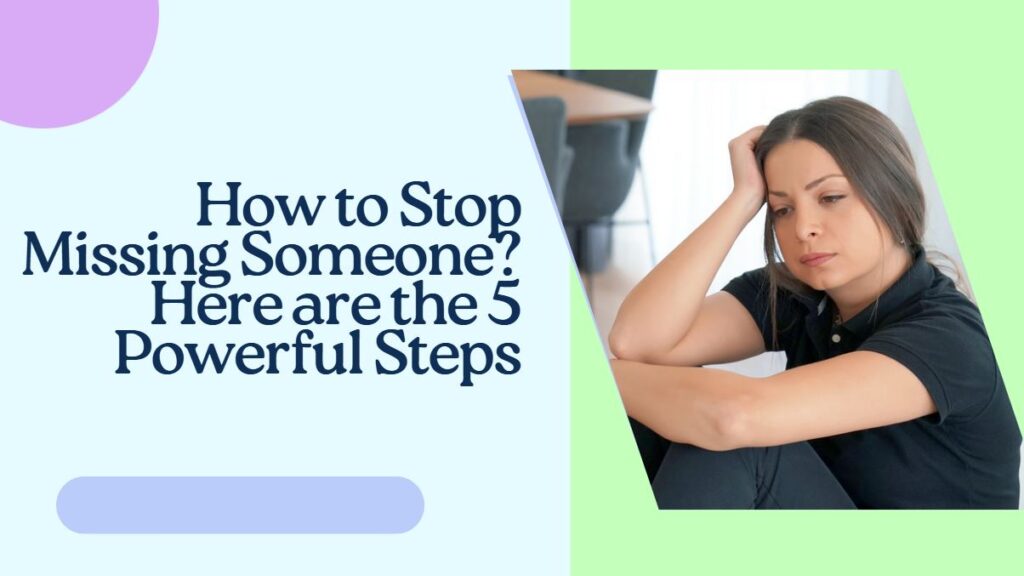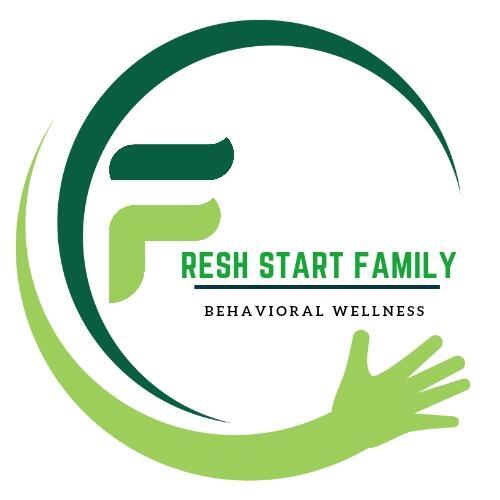Missing someone is a profoundly human experience, one that can feel both overwhelming and isolating. Whether it’s the loss of a loved one, the end of a relationship, or a shift in your emotional landscape, the feeling of missing someone can leave a lingering void. It can impact your emotional well-being, daily functioning, and overall outlook on life.
Understanding that this grief is a natural part of the human experience is essential in starting the healing process. Learning how to stop missing someone isn’t about forgetting them—it’s about finding a way to heal. This guide will walk you through how to stop missing someone by offering practical advice and emotional tools to support your journey. If you’re wondering how to stop missing someone and regain your inner peace, you’re in the right place.
Understanding Why You Miss Someone

Emotional attachment is the bond we form with people in our lives. This connection, whether it’s a partner, family member, or friend, creates a deep emotional tie that’s hard to break when they’re no longer present. When this bond is severed—whether through death, separation, or another life change—the emotional pain of missing them can be intense.
Grief often accompanies this emotional longing, as it’s the natural response to loss. Grief can manifest in various forms: sadness, confusion, anger, or even numbness. Understanding that grief doesn’t have a set timeline can help you be patient with yourself as you process the pain of missing someone.
The Role of Memories in Missing Someone

One of the most significant reasons we miss someone is the memories they’ve left behind. Whether those memories are joyful or bittersweet, they serve as a constant reminder of the connection you once had. Memories can invoke nostalgia, which may bring comfort but also intensify the sense of loss.
While it’s natural to look back, it’s also essential to recognize that living in the past can hinder the healing process. It’s important to strike a balance between cherishing the memories and not allowing them to control your present emotional state.
Understanding the Grieving Process

Missing someone often triggers a grieving process that consists of various emotional stages. These stages—denial, anger, bargaining, depression, and acceptance—are often fluid and do not occur in a linear fashion. Everyone experiences grief differently, and some may linger in certain stages longer than others. Understanding these stages can help normalize your emotional responses and reassure you that what you’re feeling is part of the healing process
The Impact of Missing Someone on Your Mental and Physical Health
Missing someone doesn’t just affect your emotions—it also impacts your mental and physical well-being. Understanding these effects is key to managing grief and moving forward.
Psychological Effects
- Anxiety: Constant worry about the future or unresolved feelings.
- Loneliness: Feeling isolated, even around others.
- Mental Fog: Difficulty focusing or making decisions due to grief.
- Depression: Persistent sadness and hopelessness if grief remains unaddressed.
Physical Symptoms of Grief
- Fatigue: Feeling drained, even after rest.
- Changes in Appetite: Loss of appetite or overeating.
- Sleep Disturbances: Insomnia or restless nights.
- Headaches & Tension: Tension headaches or muscle tightness, especially in the neck and shoulders.
Long-term Effects of Unresolved Grief
- Chronic Sadness: Ongoing feelings of sadness and emotional numbness.
- Increased Impact of Anxiety and Depression: Unresolved grief can lead to long-term mental health struggles.
- Social Withdrawal: Reduced interaction with others, deepening loneliness.
- Physical Health Decline: Chronic stress from grief can lead to issues like high blood pressure and heart problems.
How to Stop Missing Someone? Here are the 5 Powerful Steps

When you’re missing someone, it can feel like you’re overwhelmed by emotions. However, taking proactive steps to cope can help you regain a sense of control and support your healing process.
1. Self-Care Practices
During the healing process, taking care of yourself is crucial. When you’re grieving, it’s easy to neglect your emotional and physical needs. However, practicing self-care can help you regain a sense of control and nurture your well-being.
- Set Boundaries: Allow yourself time to grieve, but also create boundaries around your emotions. It’s okay to take breaks from sadness and engage in activities that bring you joy.
- Physical Care: Exercise, eat well, and ensure you’re getting enough sleep. These simple actions can help reduce the physical toll of grief and improve your mood.
- Engage in Activities That Bring You Joy: Doing things that make you happy—even if they seem small—can help you reconnect with yourself and create new positive memories.
2. Journaling and Writing for Emotional Release
One of the most effective ways to process grief is through journaling. Writing about your emotions, memories, and experiences can help you make sense of your feelings.
Prompts for Grieving: If you’re unsure where to start, here are some prompts:
- “What do you miss most about this person?”
- “How did they impact your life?”
- “What would you say to them if you could?”
Writing allows you to externalize your pain, making it easier to manage and process.
3. Creating New Routines and Distractions
Establishing new routines can be immensely helpful when you’re trying to move past the pain of missing someone. These routines can be simple, such as taking a walk at a certain time each day or setting aside time for a creative hobby.
New routines help you regain a sense of normalcy and can provide healthy distractions that reduce the mental space devoted to grief.
4. Talking to Someone You Trust
Talking to someone you trust about your grief can help alleviate the emotional burden. Whether it’s a close friend, family member, or therapist, expressing your feelings out loud can be cathartic. Additionally, support groups and grief counseling offer safe spaces where you can share your pain with others who understand what you’re going through.
5. Allowing Yourself Time to Heal
It’s important to be patient with yourself. Healing takes time, and there’s no “right” way to grieve. Some days will be better than others, and that’s okay. Remember that moving on doesn’t mean forgetting—it’s about finding peace with the loss and adjusting to life without that person.
Section 4: How to Reframe the Way You Think About Missing Someone
Reframing how you think about missing someone can help shift your perspective from pain to growth. While it’s natural to feel sorrow, adjusting your mindset allows you to honor the relationship without being weighed down by the loss.
1. Shifting Your Perspective on the Loss
Instead of focusing solely on the emptiness caused by missing someone, try to shift your perspective to one of gratitude. Think about the lessons they taught you, the good memories you shared, and the ways they enriched your life. By focusing on the positive aspects of your connection, you can begin to heal and appreciate what was, rather than solely mourning what’s no longer there.
2. Embracing the Process of Letting Go
Letting go doesn’t mean forgetting. It means accepting the loss and finding a way to live without the person, while still cherishing their memory. Techniques like mindfulness and meditation can help you stay present and focused on your healing journey rather than getting lost in longing or regret.
3. Building Emotional Resilience
Developing emotional resilience is key to moving forward. This involves strengthening your ability to handle difficult emotions and bounce back from adversity. By building coping strategies and practicing self-awareness, you can make yourself more emotionally resilient and better equipped to deal with future losses.
When to Seek Professional Help

Signs That Grief is Becoming Unmanageable
If you’re finding it difficult to function in your daily life due to missing someone, it might be time to seek professional help. Signs that grief has become unmanageable include:
- Inability to get out of bed or perform daily tasks.
- Persistent feelings of hopelessness or worthlessness.
- Engaging in unhealthy coping mechanisms, such as substance abuse or extreme withdrawal from social interactions
How Therapy Can Help
Seeking therapy can be a transformative step in managing the complex emotions that arise when you miss someone. A therapist provides a safe, non-judgmental space to explore your feelings and develop strategies for coping with grief.
- Cognitive Behavioral Therapy (CBT): CBT can help you identify and reframe negative thoughts associated with grief, reducing feelings of anxiety and sadness.
- Managing Emotional Pain: Therapy offers techniques to help you process and regulate emotions, making it easier to cope with the pain of missing someone.
- Support Through Grief Stages: A therapist can guide you through the stages of grief, helping you understand and accept your emotional responses.
- Building Healthy Coping Mechanisms: Therapy helps you develop healthier ways to cope with grief, such as problem-solving, mindfulness, and self-compassion.
Support Groups and Community Resources
Joining a support group or finding community resources can provide comfort and understanding. These groups allow you to connect with others who are experiencing similar emotions, offering mutual support and compassion.
Moving Forward: How to Let Go and Honor the Memory

- Finding Meaning in the Loss: Rather than focusing on the void left by the person you miss, try to find meaning in the loss. What lessons did they teach you? How can you carry their memory forward in a way that honors both the person and your journey?
- Honoring the Memory of the Person: There are many ways to honor the memory of someone you’ve lost. You might create a ritual, such as lighting a candle on special occasions or dedicating a charitable act in their name. You can also reflect on your memories by making a photo album or writing letters to them.
- Building a New Chapter in Life: Letting go is about making room for new experiences. Reconnecting with yourself and your passions can help you heal and build a life that reflects the person you’ve become through your loss.
Take the First Step Toward Healing: Seek Professional Support
Healing from the pain of missing someone is a process that requires time, patience, and understanding. It’s natural to experience sorrow and take time to grieve, but by taking proactive steps, such as practicing self-care, shifting your perspective, and reaching out for professional support, you can move toward emotional recovery. Seeking help from trained professionals can make a significant difference in how you navigate grief. Therapists can provide valuable tools to manage your emotions, offer a safe space to process pain, and guide you toward finding peace. With the right support, you can begin to heal and rediscover balance in your life.
At Start Behavioral Wellness, we understand how difficult it can be to cope with the overwhelming emotions of grief. Our compassionate professionals are here to be your support system—your crying shoulder when you need it most. With years of experience in helping individuals through the grieving process, we offer personalized care to address the complexities of your emotions. We specialize in grief treatment and are dedicated to helping you heal and move forward with a renewed sense of peace. Whether you prefer to visit our welcoming facility or connect with us from the comfort of your own home, we’re here for you. Don’t hesitate to reach out—contact us today at 910-436-6495 to begin your healing journey.

